
24h Expedition in Crete: Looking for the Beginning of Time
Descending the curvy roads of Mount Psiloritis at 4 a.m. is a real challenge—just not for the reasons we’d have expected. It wasn’t that we were tired in body after a long day of filming or in spirit after a long day of of trying to understand the origins of the universe.
It was the sheep. Two hundred of them, eyes flashing in our headlights, blocking our way home.
How did we find ourselves here? It began with the upcoming DIALOGUES event on Astronomy, in which world experts in astronomy will be discussing the Polar-Area Stellar-Imaging in Polarization High-Accuracy Experiment (PASIPHAE) project, which is supported by an SNF grant. When most of the words in a project title go over your head, it’s a sign that you need more background information. And so we undertook to make a short film to give this background.
How did we find ourselves here? It began with the upcoming DIALOGUES event on Astronomy, in which world experts in astronomy will be discussing the Polar-Area Stellar-Imaging in Polarization High-Accuracy Experiment (PASIPHAE) project, which is supported by an SNF grant. When most of the words in a project title go over your head, it’s a sign that you need more background information. And so we undertook to make a short film to give this background.
After traveling to University of Crete to meet the scientists in charge of the experiment, we headed to the beautiful village of Anogia, famous for its inhabitants who survived two wars and its free-range husbandry. There, over a meal of the famous local lamb, called “Ofto,” we learned from the experts about the Big Bang, Einstein's theory of relativity, and about how we might seek the origins of the universe.
Ascending to the peak of Psiloritis at at an altitude of 1,750 m, we passed from valleys of green grass to the lunar landscape surrounding the Skinakas Observatory. The air was clear and cold, and the view breathtaking. The sky looked somehow different, brighter, than we were used to, and our hosts explained that we were above atmospheric pollution.
Low temperatures and strong wind made the filming difficult, but the real challenge, foreshadowing our work, was the anarchic movement of sheep grazing there and the clanging of their bells. We learned much more about the scientists’ work, including the timeliness of support for their experiment, helping them keep the research going on in Greece.
The rest will be in the film, and much will be discussed at the DIALOGUES, but what we took away was the true passion of these scientists to seek answers for the most fundamental questions about the cosmos by gazing toward the stars. And occasionally to wish on those stars for sheep-free roads.
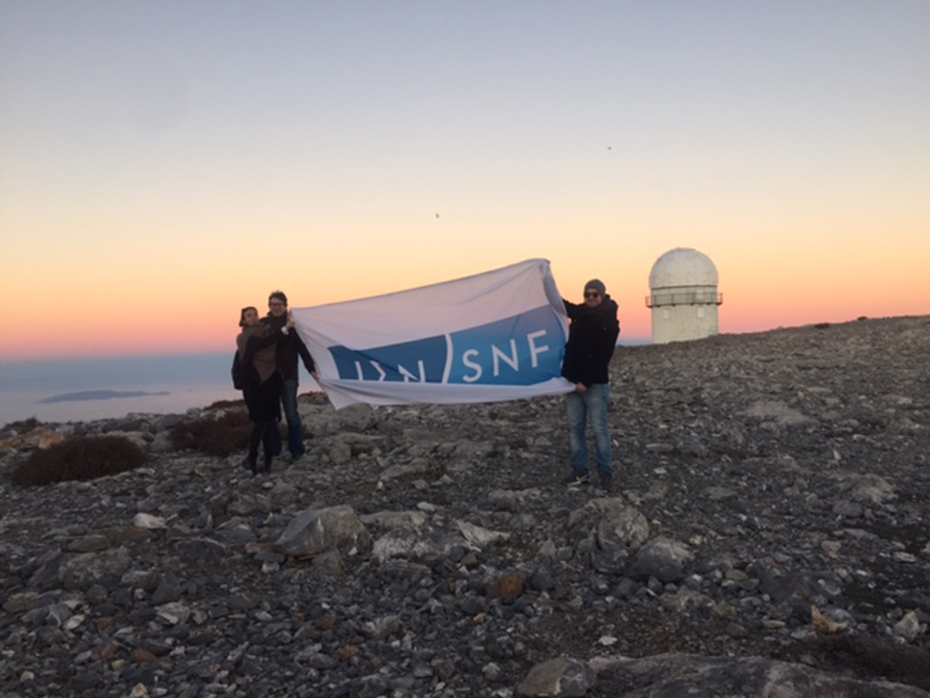
Filming at Skinakas Observatory, at the peak of Mount Psiloritis, at an altitude of 5,740 ft. Source: SNF
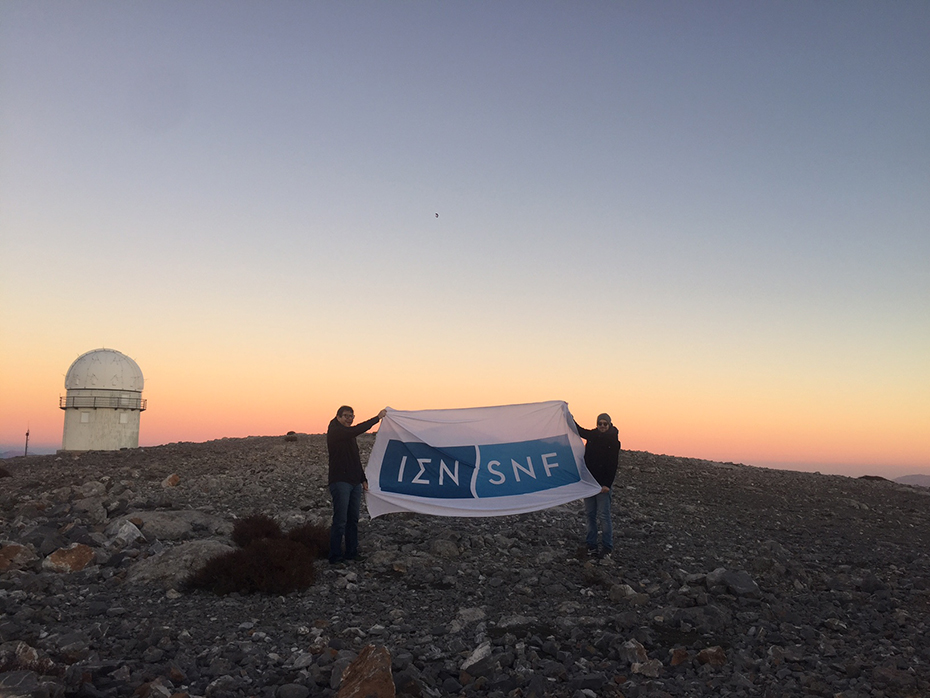
Filming at Skinakas Observatory, at the peak of Mount Psiloritis, at an altitude of 5,740 ft. Source: SNF
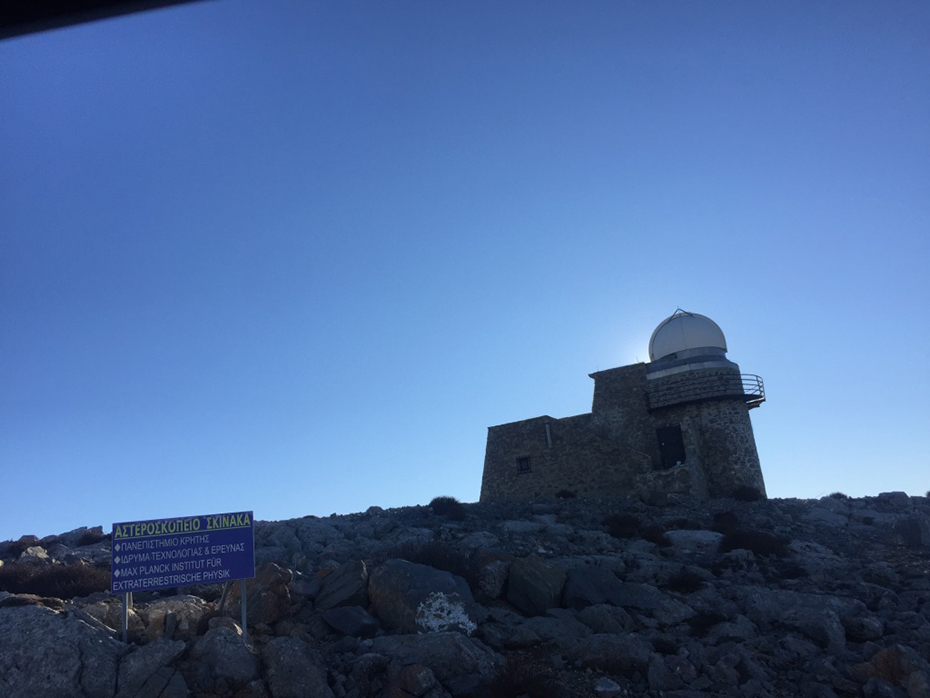
Filming at Skinakas Observatory, at the peak of Mount Psiloritis, at an altitude of 5,740 ft. Source: SNF
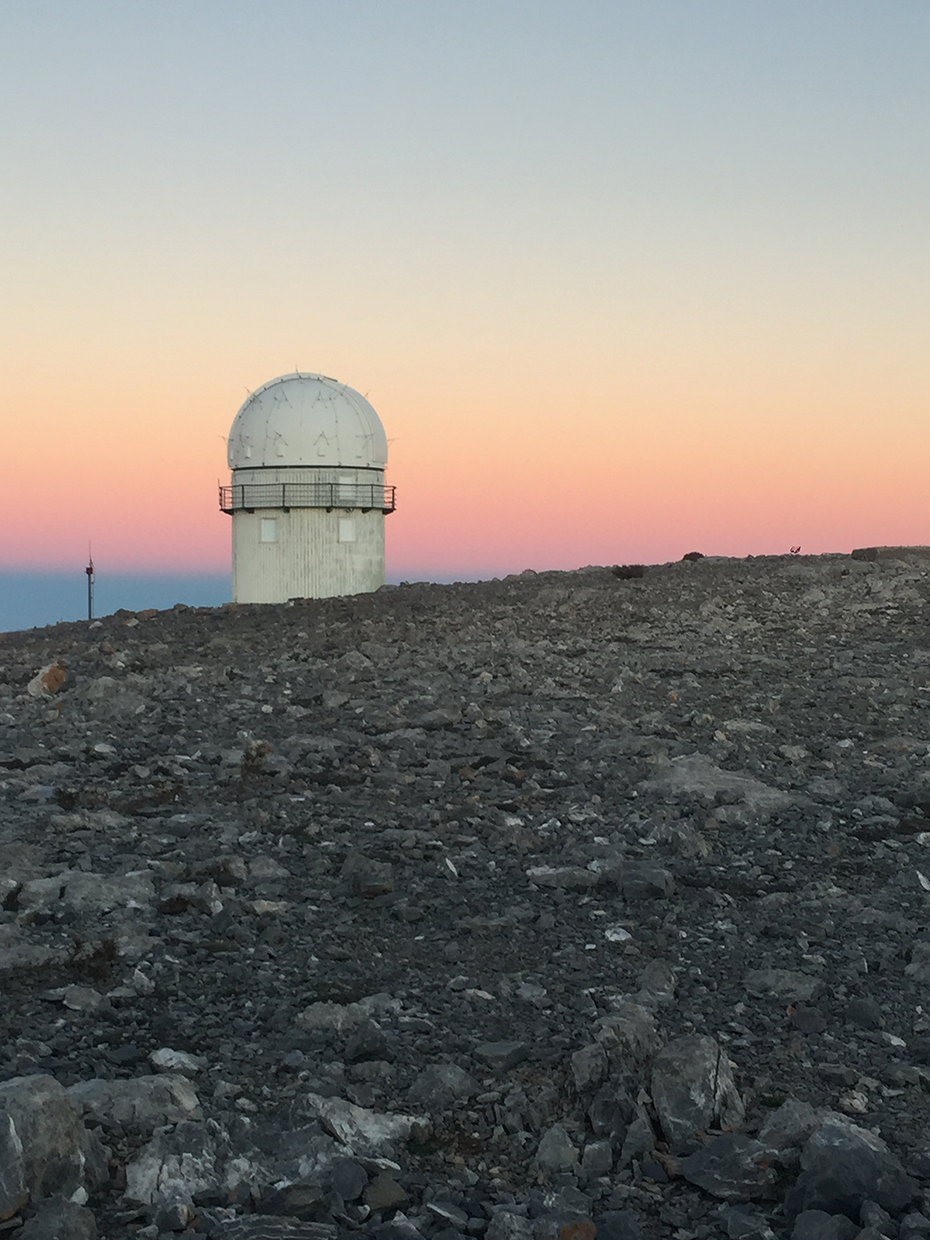
Filming at Skinakas Observatory, at the peak of Mount Psiloritis, at an altitude of 5,740 ft. Source: SNF
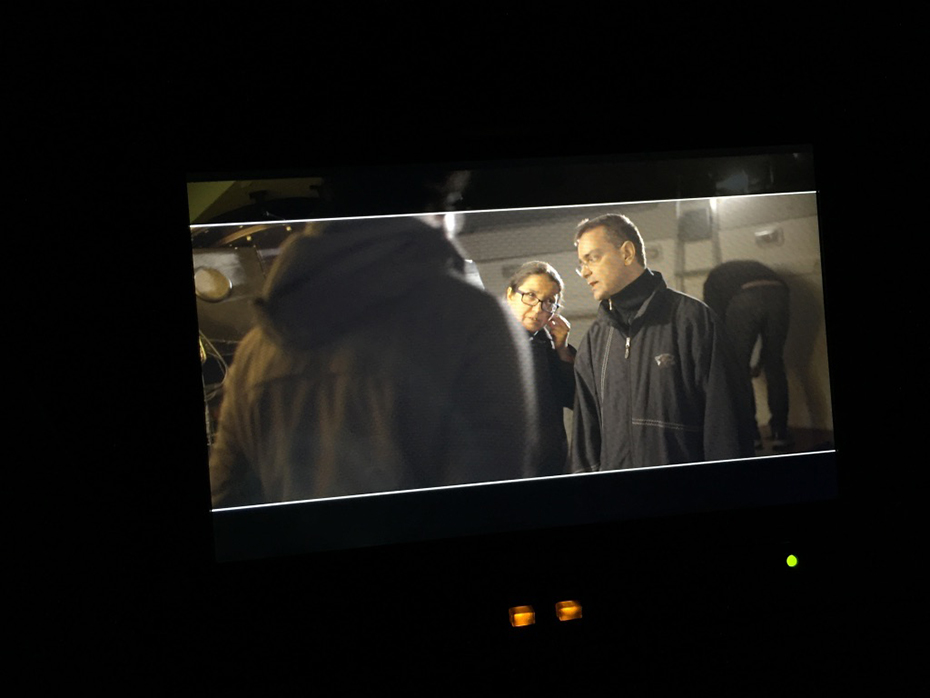
Filming at Skinakas Observatory, at the peak of Mount Psiloritis, at an altitude of 5,740 ft. Source: SNF
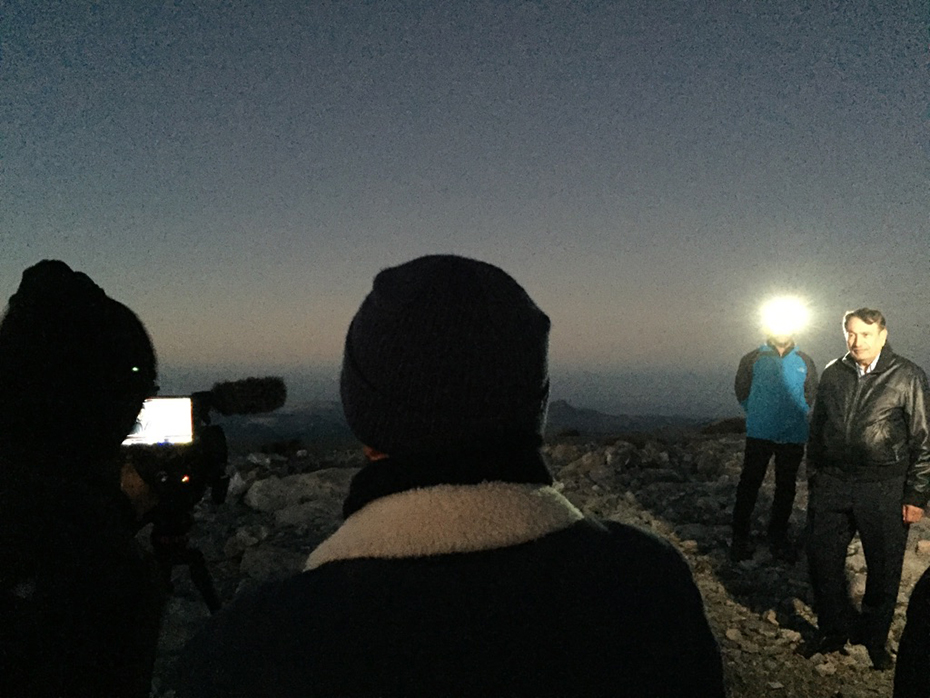
Filming at Skinakas Observatory, at the peak of Mount Psiloritis, at an altitude of 5,740 ft. Source: SNF
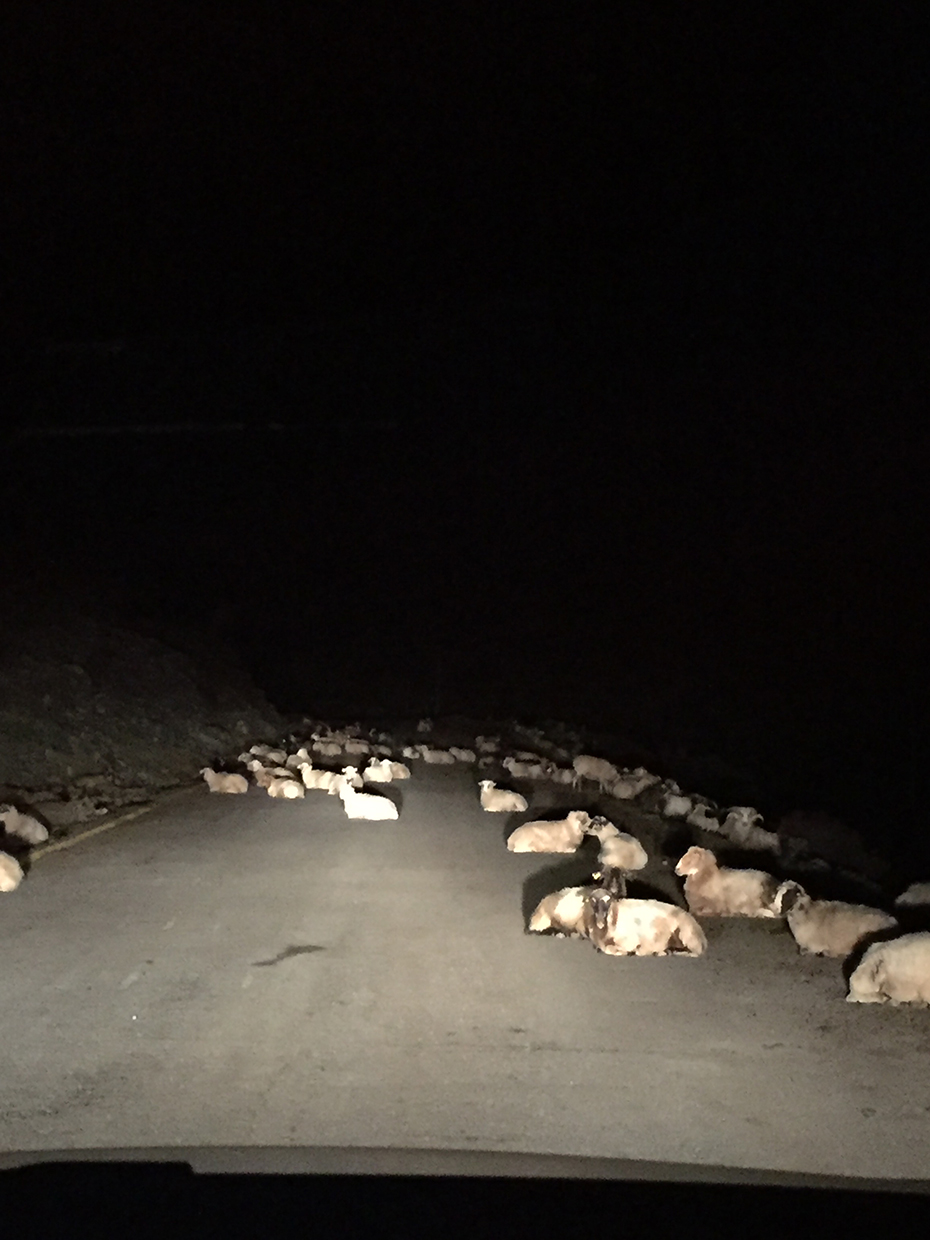
Source: SNF
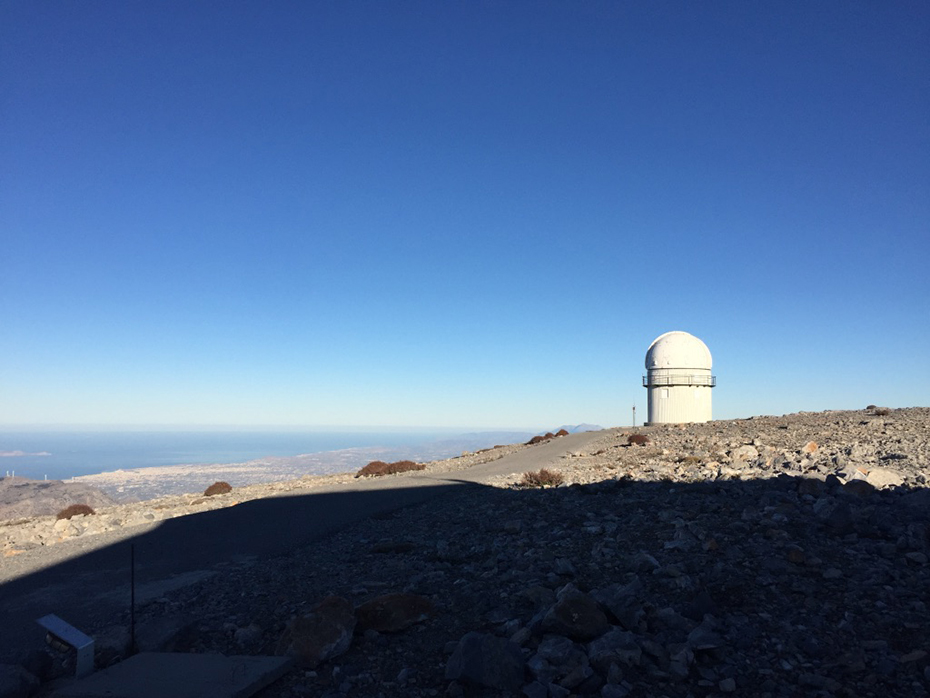
Filming at Skinakas Observatory, at the peak of Mount Psiloritis, at an altitude of 5,740 ft. Source: SNF
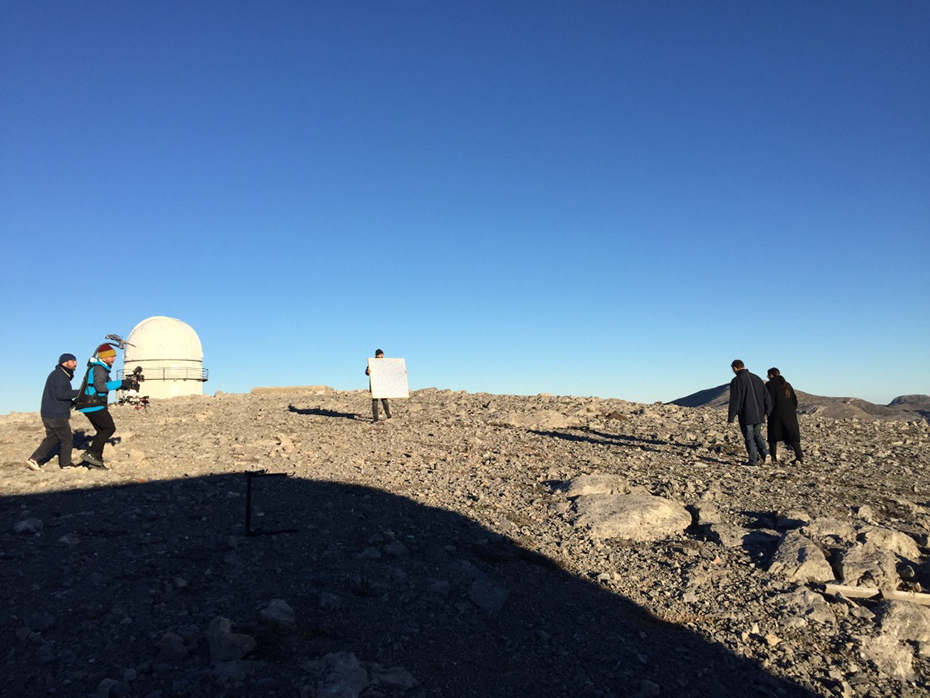
Filming at Skinakas Observatory, at the peak of Mount Psiloritis, at an altitude of 5,740 ft. Source: SNF
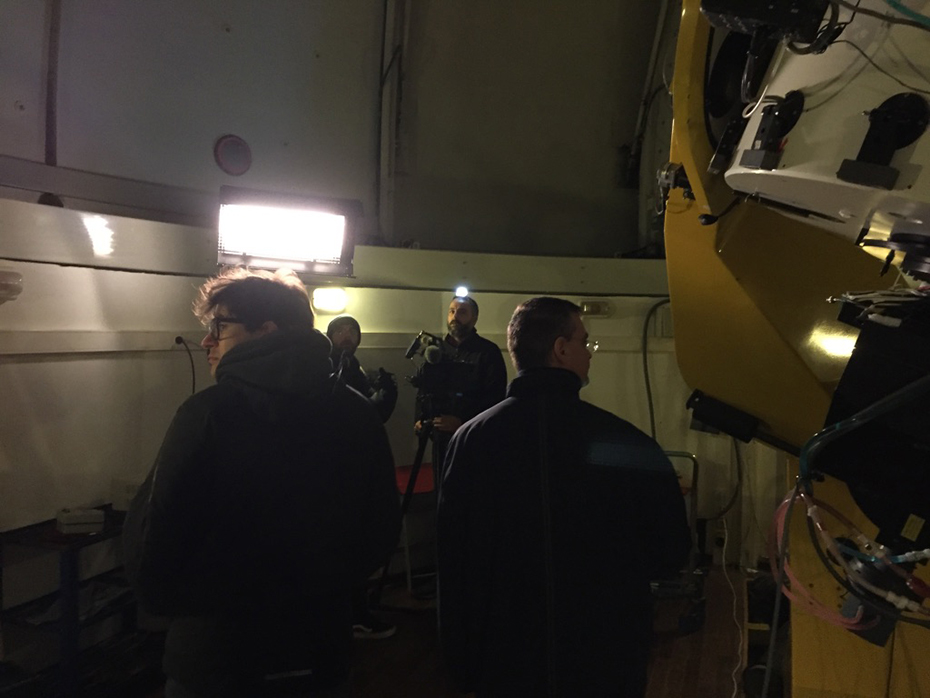
Filming at Skinakas Observatory, at the peak of Mount Psiloritis, at an altitude of 5,740 ft. Source: SNF
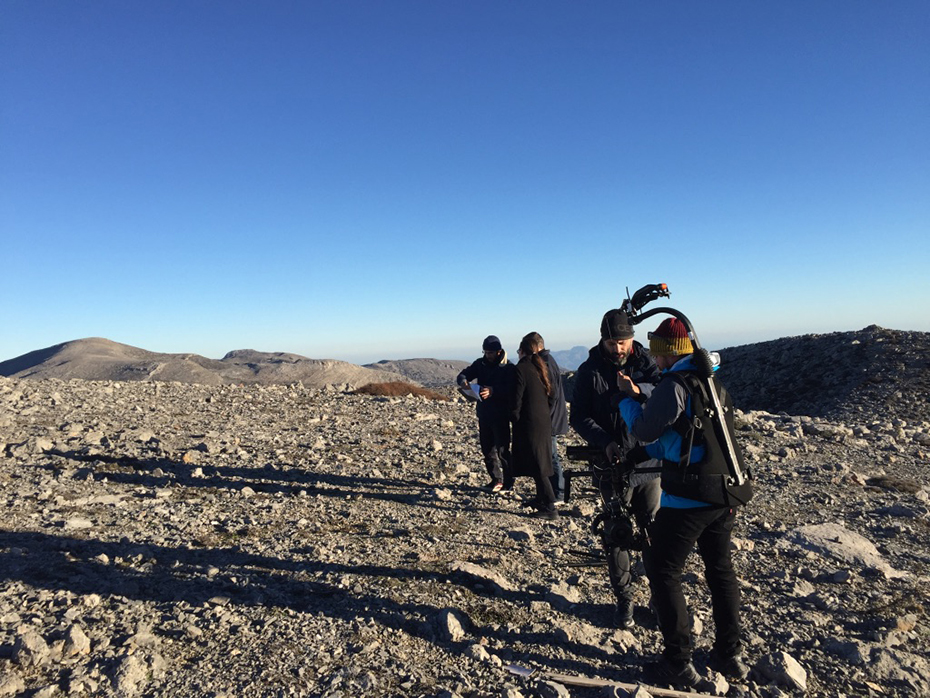
Filming at Skinakas Observatory, at the peak of Mount Psiloritis, at an altitude of 5,740 ft. Source: SNF